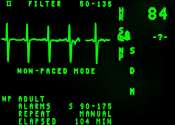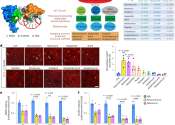A new gene-editing system tackles complex diseases
The human genome consists of around 3 billion base pairs and humans are all 99.6% identical in their genetic makeup. That small 0.4% accounts for any difference between one person and another. Specific combinations of mutations ...
May 21, 2024
0
183









